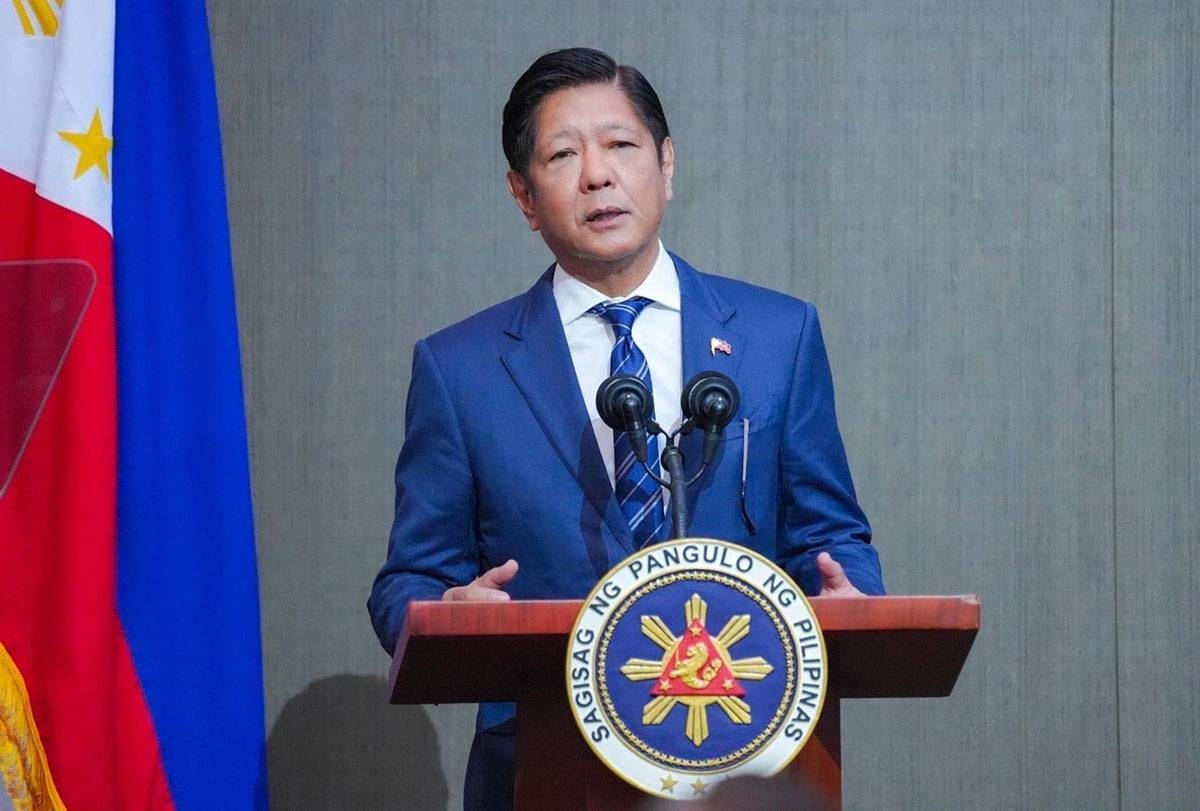President Marcos’s Support for Vice President Duterte-Carpio as Education Secretary
President Marcos assured the public that Vice President Duterte-Carpio’s position as Education Secretary was secure and that the sentiments expressed by the First Lady would not affect their working relationship. He emphasized that he would personally discuss the matter with Vice President Duterte-Carpio, taking into consideration the concerns raised by his wife. President Marcos acknowledged the protective nature of his wife and expressed gratitude for having someone who stood up for him in the face of negative comments. He understood the First Lady’s upset when derogatory remarks were made about him and recognized that it was natural for her to feel that way.
The President firmly stated that the issue at hand should be focused solely on the performance of the cabinet secretaries. He reiterated that any of them, including Vice President Duterte-Carpio, would be replaced if they were not fulfilling their responsibilities or if they were involved in corrupt practices. President Marcos made it clear that if any cabinet secretary lacked the necessary skills or became ill, they should inform the government so that suitable replacements could be found. However, he assured the public that Vice President Duterte-Carpio did not fall into any of these categories and therefore would not be replaced.
President Marcos’s stance on the matter highlighted the importance of evaluating the performance and capabilities of cabinet secretaries, regardless of their personal relationships or positions. He maintained that the government’s priority was to ensure that the right individuals were in place to effectively carry out their duties and responsibilities. By addressing the issue head-on and emphasizing the need for accountability, President Marcos aimed to assure the public that the administration was committed to good governance and would take appropriate action if necessary.
Furthermore, President Marcos’s support for Vice President Duterte-Carpio extends beyond mere words. He has consistently provided her with the necessary resources and authority to implement her vision for the education sector. Under her leadership, significant reforms have been introduced, aimed at improving the quality of education and empowering Filipino students.
Key Initiatives in the Education Sector
One of the key initiatives spearheaded by Vice President Duterte-Carpio is the enhancement of the curriculum to align it with the demands of the modern world. Recognizing the importance of technology and digital literacy, she has introduced coding and computer programming as mandatory subjects in schools. This forward-thinking approach equips students with the skills needed to thrive in the digital age and prepares them for future job opportunities.
In addition to curriculum reforms, Vice President Duterte-Carpio has also prioritized the improvement of educational facilities and infrastructure. She has initiated a nationwide program to upgrade school buildings, ensuring that students have access to safe and conducive learning environments. This investment in infrastructure not only enhances the educational experience but also stimulates local economies through job creation and increased economic activity.
Furthermore, Vice President Duterte-Carpio has been a strong advocate for inclusive education, ensuring that students with disabilities are given equal opportunities to learn and succeed. She has implemented policies to promote accessibility and support for students with special needs, such as the provision of assistive technologies and the training of teachers in inclusive teaching methodologies. These efforts have been widely applauded by the international community and have positioned the Philippines as a leader in inclusive education.
The Role of the First Lady in Philippine Politics
The role of the First Lady in Philippine politics goes beyond being a representative of the president and the country. In fact, the First Lady often takes on various responsibilities and initiatives that contribute to the overall development and welfare of the nation. From championing social causes to spearheading charitable projects, the First Lady plays a crucial role in addressing the needs of the people.
One notable example of a First Lady who made a significant impact is former First Lady Imelda Marcos. During her husband’s presidency, she took on the responsibility of promoting arts and culture in the country. She established the Cultural Center of the Philippines, which became a hub for showcasing Filipino talent and creativity. Additionally, she initiated the construction of the Manila Film Center, which aimed to promote the local film industry.
Another important aspect of the First Lady’s role in Philippine politics is her influence on public opinion. The First Lady often acts as a bridge between the president and the people, using her platform to communicate the government’s policies and initiatives. Her ability to connect with the public and convey the president’s vision is crucial in garnering support and trust from the citizens.
Moreover, the First Lady’s involvement in political matters can also extend to policy-making. While she may not hold an official position in the government, her insights and perspectives are valued by the president. The First Lady’s close relationship with the president allows her to provide input on various issues and contribute to the decision-making process. This collaborative approach ensures that the government takes into account the concerns and perspectives of different stakeholders, ultimately leading to more inclusive and effective policies.
In conclusion, the role of the First Lady in Philippine politics is multifaceted and significant. From representing the president and the country to championing social causes and influencing public opinion, the First Lady’s contributions are vital in shaping the nation’s development. Her involvement in political matters highlights the importance of open communication and understanding within the presidential family, ultimately leading to a more inclusive and responsive government.
Source: The Manila Times







